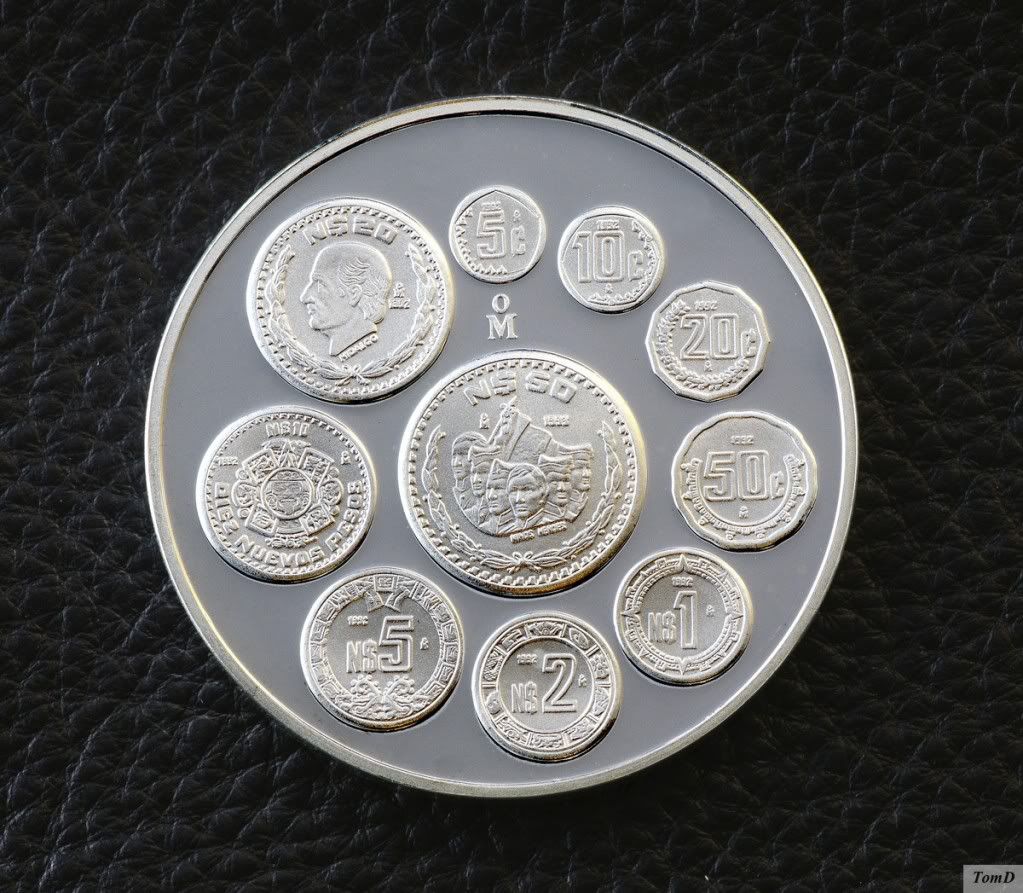saveyourassetsfirst3 |
- WATCH: Global Collapse Assured
- If Silver Goes Down All Hell Will Break Loose In The Physical Market
- Commodity ETF Flows: Precious Metals, Broad Market ETPs Eke Out Inflows
- Precious Metals Pullbacks In Perspective
- This past week in gold
- Weekly Preview: Banking Sector Holds The Key
- SilverFuturist: Trader Mentality In Silver
- Eurozone Leaders Duck All The Big Issues
- Swiss & Germans To Unleash Capital Controls
- Euro Fudge Distracts From Global Debt Titanic; Intervention In Gold Market?
- The Defense of Scoundrels
- These Charts Were Selected To Explain Several Key Points For Precious Metals
- JP Morgan “Greed Washing”: Sponsors Orwellian TV Advertorial to Tout $2 Million of Charity Spending
- Wolf Richter: Germany’s Last-Ditch Compromise, At A Price
- Why Silver will outperform gold 400% & how you can join the party
- Where Friedman Went Wrong
- Gold is Money
- You Can’t Print More Gold
- Silver Price Ready For The Next Big Rally
- WATCH: Global Currency War Escalates
- Deflating the Derivatives Balloon
- Keiser Report: Gold for Bonds
- Physical Gold & Silver Rehypothecated
- Mexican Coins Picts
| WATCH: Global Collapse Assured Posted: 11 Dec 2011 05:38 AM PST GLOBAL COLLAPSE Assured. Here is Why….. from Fabian4Liberty: Probably the most important video I have ever done. Why Global Collapse is assured and how the Shadow Banking System is collapsing right now! If you have not heard this message already, please consider cashing out all your paper assets. In my opinion you stand to lose everything. In fact, I would argue you have already lost everything! Thanks for watching. Please share this video if you enjoy it! ~TVR |
| If Silver Goes Down All Hell Will Break Loose In The Physical Market Posted: 11 Dec 2011 03:09 AM PST |
| Commodity ETF Flows: Precious Metals, Broad Market ETPs Eke Out Inflows Posted: 11 Dec 2011 12:57 AM PST By Hard Assets Investor: by Sumit Roy It was a slow week for ETP flows, but investors remained interested in precious metals. It was an uneventful week for commodity-related exchange-traded product flows, as every sector saw only fractional movements. Precious metals and broad market (multicommodity) ETPs had inflows of $70 million and $31 million, respectively. Agriculture, energy and industrial metals ETPs had outflows of $66 million, $62 million and $4 million, respectively. ETP Inflows/Outflows Given that sector movements were modest, naturally, flows into and out of individual ETPs were the same. The iShares Silver Trust (SLV), Market Vectors Junior Gold Miners ETF (GDXJ) and Market Vectors Gold Miners ETF (GDX) were three precious metals products that took spots No. 1, 2 and 4 on the top inflows list. Investors added $68 million, $50 million and $47 million, respectively, to each. Two energy names, the United States Natural Gas Fund (UNG) and Alerian MLP (AMLP) Complete Story » |
| Precious Metals Pullbacks In Perspective Posted: 11 Dec 2011 12:40 AM PST If you're bullish about the long term for gold and silver, it's mouthwatering to watch them undergo a major correction after taking earlier profits that added to your deployable cash. For a little historical perspective on pullbacks, consider the following charts (click to enlarge images): The current 15.6% gold decline, while considered a "major" correction, is not out of the ordinary, particularly following the Complete Story » |
| Posted: 10 Dec 2011 11:48 PM PST By Jack Chan at www.simplyprofits.org 12/10/2011 GLD – on sell signal. SLV – on sell signal. GDX – on sell signal. Summary Disclosure End of update |
| Weekly Preview: Banking Sector Holds The Key Posted: 10 Dec 2011 11:38 PM PST By Tim Clayton: The week ahead is likely to be dominated by issues of trust or, to be more precise, a lack of trust with the banking sector likely to be a key focus. If funding pressures cannot be alleviated, there will be the growing threat of a major European bank failure which would put risk appetite under severe pressure. The EU Summit has to be one of the most bizarre in recent memory. Leaders may be relieved that they have managed to get through this exercise without causing a market meltdown, but it is very difficult to believe that the key players actually think that they have improved the eurozone outlook. The Summit was fundamentally a political exercise as this was the only way to cover-up the lack of any real achievement and prevent an even deeper political crisis for the French President. The UK provided a very convenient political smokescreen as Complete Story » |
| SilverFuturist: Trader Mentality In Silver Posted: 10 Dec 2011 11:34 PM PST from silverfuturist: ~TVR |
| Eurozone Leaders Duck All The Big Issues Posted: 10 Dec 2011 11:13 PM PST The EU treaty agreement reached by eurozone leaders last week isolated Britain and proposed a new 'fiscal compact', but in reality it looks like just a 'lousy compromise'. from Telegraph.co.uk:
Prior to the bad-tempered Brussels meeting, William Hill had priced up the collapse of the eurozone before 2013 at 3/1. The odds post the summit? Also 3/1. "We can't see it's really changed anything," is spokesman Graham Sharpe's verdict on a conflab that produced a more isolationist Britain and a potential two-tier EU – but failed to convince anyone, least of all the markets, that monetary union at last had some durable political oomph behind it. Simon Smith, chief economist at FxPro, says the fate of the eurozone has now become "binary": "Either one or more of the countries will leave or you'll see an accelerated path to fiscal union. But what has been agreed at this summit doesn't go far enough towards fiscal union. The momentum on that is too slow. I'm less optimistic than I was a couple of months ago." Read More @ Telegraph.co.uk |
| Swiss & Germans To Unleash Capital Controls Posted: 10 Dec 2011 11:11 PM PST Swiss, Germans Set To Unleash Capital Controls As European Companies Prepare For Euro End from ZeroHedge:
Even as Eurozone leaders attempted to instill some meager sense of accomplishment following the latest (but certainly not last) Euro summit culminating with yet another 7-page term sheet which achieved absolutely nothing, and in fact succeeded in alienating the UK even more, the real game continues behind the scenes. And it is a game which the euro looks set to lose. As Bloomberg reports, in the aftermath of the Telegraph's latest report confirming what has been said here all about the collateral crunch in Europe, Europe's CEO are now actively preparing for the worst case outcome: the end of the Euro (despite UBS' and other banks' repeated calls that such an event would result in an end of the world). To wit: "Grupo Gowex (GOW), a Spanish provider of Wi-Fi wireless services, is moving funds to Germany because it expects Spain to exit the euro. German machinery maker GEA Group AG is setting maximum amounts held at any one bank. "I don't trust Spain will remain in the euro zone," said Jenaro Garcia, founder and chief executive officer of Madrid- based Grupo Gowex, which provides Wi-Fi access in 15 countries. "We moved our cash and deposits to Germany because Spain will come back to the peseta"… Read More @ ZeroHedge.com |
| Euro Fudge Distracts From Global Debt Titanic; Intervention In Gold Market? Posted: 10 Dec 2011 10:47 PM PST By Mark O'Byrne: Gold edged higher in euros, pounds, dollars and all currencies Friday after the European Union leaders failed overnight to get all of the bloc's 27 members to agree a change in the EU treaty allowing fiscal integration as the 'decisive' summit in Brussels ended its first day in the early hours Friday. Gold traded higher after the ECB interest rate cut yesterday, prior to sharp selling that came into the market at 1335 GMT. This led to gold falling 2% on the day and it is now down 1.3% on the week – again outperforming many equity indices. click to enlarge images Market News International (MNI) reported that market sources said that the Bank for International Settlements, the Bank of England and the Federal Reserve have been "good sellers of gold" after it had popped to a fresh session high of $1,755.90/oz. The MNI report has not been explored and Complete Story » |
| Posted: 10 Dec 2011 10:22 PM PST There is a financial scam going on that no one involved wants to stop. That includes politicians, government economists, banks, Wallstreet and other beneficiaries. We had a collapse that "no one could have foreseen." This defense is pitiful, disingenuous and the refuge of scoundrels. It is the abandonment of responsibility and truth. There were plenty [...] |
| These Charts Were Selected To Explain Several Key Points For Precious Metals Posted: 10 Dec 2011 08:34 PM PST GDM has turned positive but must break-up and through 1620 resistance for mining stocks to confirm a stronger rally. Hecla is shown coming-up and off near lows toward the 200 day moving average related to call options we recommended. They had a bad mine accident recently, which knocked down the shares. Now, however, they should rally. Goldcorp is above the 200-day average and almost on the 50-day. They have a premium stock, indicative of an entire markets' group. If solidly above $50.00, the entire gold and silver market is moving-up. Cour D Alene was badly managed some time ago. They have new management and things are improving. I am watching their shares to find a call option as we are nearing a precious metals breakout . This posting includes an audio/video/photo media file: Download Now |
| JP Morgan “Greed Washing”: Sponsors Orwellian TV Advertorial to Tout $2 Million of Charity Spending Posted: 10 Dec 2011 06:48 PM PST The New York Times (hat tip Mary B) took note of a seamy JP Morgan effort at brand burnishing:
Chase claims this show is to raise the profile of the charities and help them raise more money. The problem is that any argument that this JP Morgan TV extravaganza has much to do with altruism fails when you do the math. JP Morgan is touting $2 million of spending. If you are serious about giving to charities, one of the very first things you look at is the efficiency of your donation. You get the charity's financial statements and look at how much money goes to the cause, as opposed to fundraising and admin. I'm not current on TV advertising rates (they were $110,000 per 30 second spot in the first quarter, and that is the weakest period of the year for ad spending). JP Morgan bought eight 30 second ads. Even if we assume JP Morgan got better rates than that (Saturday is a low viewership night, and they probably negotiated some sort of volume discount on top of that), the cost of buying airtime was large relative to what went to the charities. And that's before you get to the expense of producing the program. And let's not forget, quite a few JP Morgan employees will get compensation in excess of $2 million this year. It would be more straightforward for JP Morgan to do a prime time TV show about why they think that's warranted, since increasing pay levels appears to be every large banks' prime directive. It appears the entire financial services industry is on an advertising kick, this in a year when profits are flagging. I wonder how much of it is defensive, image-burnishing spending. Now this sort of "let's really pretend we are doing something other than PR" messaging is taking place on multiple fronts, as Dave Dayen reminded us last month:
JP Morgan rolled over early on, as Dayen noted in his story, "JPMorgan Settlement Continues Their Persistent Attention to Just One Type of Foreclosure Fraud" (if you want to see another type, read "How Chase Ruined the Lives of People Who Paid Off Their Mortgages" for an example):
So having done right with one customer group because there were serious ramification if the bank didn't make amends (violations of the Servicemans' Civil Relief Act are criminal), JP Morgan has the nerve to tout how nice it has been to soldiers. This is an ad you apparently see if you access a Chase account online, and I'm told similar promotions are running in the media: One of the basic principles of marketing is that fundamentally misrepresenting your brand in your advertising messages will ultimately backfire. JP Morgan will prove to be a case study of how long it takes for that to occur. |
| Wolf Richter: Germany’s Last-Ditch Compromise, At A Price Posted: 10 Dec 2011 06:16 PM PST By Wolf Richter, San Francisco based executive, entrepreneur, start up specialist, and author, with extensive international work experience. Cross posted from Testosterone Pit. "I'm very happy with the result," Chancellor Angela Merkel told the cameras on Friday morning as she climbed out the limo. She talked about the start of a stability and fiscal union and didn't want to accept any "lazy compromises." But the vague agreement that emerged may be illegal under European Union law and may devastate weaker economies. It elevated Germany to a leadership role that other countries perceive as domineering and arrogant. It can't be put into a treaty. And by isolating the United Kingdom, it cut a deep gash into the EU—inflicting heavy collateral damage on the well-functioning 27-country free-trade area though it was aimed at the teetering 17-member Eurozone. At its most fundamental level, the Eurozone has a nasty flaw: it allows member economies to become addicted to the crack cocaine of deficit spending without giving them a central bank that provides unlimited amounts of money to feed the habit. The Eurozone is the only major economy that has forbidden its central bank by law to print money to buy government debt. Goal: a currency that would retain its value. The Fed's policy of stirring up inflation and devaluing the dollar is called Inflationspolitik in German, synonymous with government deception and theft. And Germany tried to make sure that the euro wouldn't by hijacked by it. But deficits spiraled out of control and debt piled up and the crisis arrived. Each summit that was supposed to solve the crisis once and for all by injecting confidence into the markets was followed by loss of confidence, chaos, and … another summit. Yet the problem remains un-fixed: economies addicted to crack cocaine without a central bank to feed the habit. Markets know that. All they want is for the ECB to turn on the printing press and buy unlimited amounts of Eurozone sovereign debt. It would cause a bout of inflation (30% – 50% over ten years, as it has in the US), devalue the currency, and demolish the purchasing power of the middle class as wages wouldn't keep up with inflation. On Thursday, the ECB has come close with its announcement that it would lend unlimited amounts of money at near-zero interest rates for up to three years … to banks. But not countries. Inflationary risks may be similar, but it doesn't violate the treaty. A solution that left some Greeks, whose salaries and pensions had been decimated, scratching their heads. The agreement corresponds to Merkel's demands:
The back door is already wide open. While each country is required to propose an essentially balanced budget, any major catastrophe or recession would allow it to run a large deficit—a matter of interpretation. No date has been set when the rules would go into effect. Maybe 2020, if Germany's own new rules are any guide. It's not a current fix. Then, a majority of finance ministers can vote to stop the "nearly automatic" sanctions. There are precedents. The existing deficit and debt limits have been violated with impunity by 11 of the 17 Eurozone countries, including Germany and France. In 2003, when Germany's debt blew past the debt limit, EU finance ministers stopped the sanctions against Germany, which was the end of all sanctions for all times. Hence, the crisis. The new sanctions? Actually, there aren't any in the agreement. And the new treaty can't even be a treaty. To establish a fiscal union by modifying the Lisbon Treaty, all 27 member states, including the UK, would have to agree to the changes. Complex democratic procedures would follow. It would take years and require parliamentary votes and messy referendums. Merkel wants it wrapped up by March 2012. So a side treaty for the 17 Eurozone countries and maybe 9 other EU countries. But legal experts from the EU Commission, the ECB, and the European Council stated that the proposed side treaty for a fiscal union would be illegal under the Lisbon framework. Countries could only offer "political declarations of intent." They would not be legally binding, and any new government could declare them null and void. Nevertheless, the new treaty or declaration of intent or whatever outlines Merkel's compromise solution to the underlying flaw of the Eurozone (allowing economies to become addicted to crack cocaine without giving them a central bank that can feed the habit). Implementation of deficit reductions will take years and will allow countries to wean themselves gradually from their habit. At the same time, Merkel has been tolerant of the ECB's signals that a fiscal union would give it more leeway in buying sovereign bonds at a pace faster than it already is buying them. Thus the compromise: less dependence on crack cocaine but some money from the ECB to feed the habit. While Friday's agreement doesn't fix anything, it does reveal a perhaps last-ditch effort by Germany to accommodate a measure of Inflationspolitik in order to safe the euro, as long as member states will make a serious effort to get their budgets in line. Of course, the devastating short-term impact that withdrawal can have is now playing out in Greece: it brings the economy to its knees and sends people rioting into the streets. Already, the Swiss government is preparing for a collapse of the euro while the EU heads of state discuss changes that would impose Germany's new religion on them…. Sarkozy: "The Risk That Europe Will Explode." |
| Why Silver will outperform gold 400% & how you can join the party Posted: 10 Dec 2011 04:30 PM PST |
| Posted: 10 Dec 2011 04:00 PM PST Gold University |
| Posted: 10 Dec 2011 04:00 PM PST Mises |
| Posted: 10 Dec 2011 08:40 AM PST by Frank Holmes, GoldSeek.com:
An exceptionally potent formula for higher gold prices that could send gold to the unimaginable level of $10,000 an ounce. Negative real interest rates and strong money supply growth are two key factors of what I refer to as the Fear Trade. Negative real interest rates occur when the inflationary rate, or CPI, is greater than the current interest rate. A quick account of the G-7 and E-7 countries shows that the majority have negative real interest rates. Across the developed G-7 countries, British citizens are the worst off with real interest rates in the U.K. sitting at negative 4.5 percent. U.S investors aren't doing much better with rates at negative 3.25 percent and the Fed has all but guaranteed rates will remain there. Only Japan has a positive real interest rate among the G-7 and that rate is barely above zero. Read More @ GoldSeek.com |
| Silver Price Ready For The Next Big Rally Posted: 10 Dec 2011 08:36 AM PST Silver Price Pessimism Bottoming Out Ready For The Next Big Rally by Peter Cooper, SilverSeek:
Silver it becomes apparent is at the bottom of its range for pessimism: 'The so-called "commitment of non-commercial traders" hit 10,352. That's incredibly low. The last time sentiment numbers were that low was in August 2007. Six months later, the price of silver was 59 per cent higher. It rose from $12 per ounce to $19 per ounce. 'I went all the way back to 2002 and found that silver sentiment bottomed near 10,000 six times… On average, the price of silver rose 33 per cent in the next six months and 54 per cent over the next year. Here's how the silver price performed after each of the last four times silver sentiment bottomed out…' Read More @ SilverSeek.com |
| WATCH: Global Currency War Escalates Posted: 10 Dec 2011 08:33 AM PST Global Currency War Escalates Over Euro ~TVR |
| Deflating the Derivatives Balloon Posted: 10 Dec 2011 08:25 AM PST by Alasdair Macleod, GoldMoney.com:
Such a simplistic view ignores the linkages between a firm's activities in unrelated markets. This seems to have led to the downfall of MF Global, the eighth-largest bankruptcy in US history. It appears that they were scuppered by perfectly legal off-balance sheet repos-to-maturity in European government debt. It also appears that segregated customer funds were used for this purpose, and not co-mingled with the firm's funds as first supposed. While final redemption of the sovereign debt was guaranteed by both the individual sovereigns and the European Financial Stability Fund and matched to its funding, MF Global was tripped up by margin calls it was unable to meet. The use of client funds in this manner may turn out to have been perfectly legal and so they are completely lost. Read More @ GoldMoney.com |
| Posted: 10 Dec 2011 08:24 AM PST This week Max Keiser and co-host Stacy Herbert discuss central banks and governments 'saving the day' and hostage taking paper silver markets and gold for bonds in Japan. In the second half of the show, Max talks to Satyajit Das, author of Extreme Money, about the European debt crisis. ~TVR |
| Physical Gold & Silver Rehypothecated Posted: 10 Dec 2011 08:15 AM PST More Fallout on Re-Hypothecation: Physical Gold/Silver Rehypothecated by Harvey Organ: Good morning Ladies and Gentlemen: I will spend more time on the huge re-hypothecation story that is gripping the nation as it has huge implications for all of us. Yesterday, a lawsuit arose between HSBC (with client Jason Fane) vs MFGlobal (trustee) on ownership of bars registered in the name of the client who had asked the storage operator, HSBC to ship the gold to another warehouse Brinks. I have written to the CFTC on this issue and I hope I get a response. However before heading into that area I would like to report that the FDIC boys got another week off as their were no banks that entered the hallowed shrine of the banking Morgue. Now let us now head over to the comex and see how trading fared, coupled with delivery notices, inventory changes and the weekly COT report. Gold finished the comex session up $2.50 to $1712.00 while silver had a better day finishing up 63 cents to $32.17. The rise in the precious metals was tame compared to the Dow which rose by 168 points on news that there was no appreciable advance on how the Eurozone was going to finance their rescue. Read More @ HarveyOrgan.Blogspot.com |
| Posted: 10 Dec 2011 06:59 AM PST I've got a friend in Mexico who feeds me good stuff from time to time. Just got the commerative Numeracion Maya shown below. I'll include a few shots of other Mexican stuff just to remind you how nice the offerings from Casa de Moneda de Mexico are.        |
| You are subscribed to email updates from Gold World News Flash 2 To stop receiving these emails, you may unsubscribe now. | Email delivery powered by Google |
| Google Inc., 20 West Kinzie, Chicago IL USA 60610 | |




 If in doubt, ask a bookmaker. So much noise has accompanied the latest EU crisis summit that it's easy to miss the main point. Is a eurozone break-up now more or less likely?
If in doubt, ask a bookmaker. So much noise has accompanied the latest EU crisis summit that it's easy to miss the main point. Is a eurozone break-up now more or less likely?



 What do you get when you mix negative real interest rates with stimulative money supply efforts by global central banks?
What do you get when you mix negative real interest rates with stimulative money supply efforts by global central banks? There is an intriguing commentary in The Daily Reckoning by Matt Badiali on silver. In particular he cites Jason Goepfert's SentimenTrader readings for silver. This service tracks investor sentiment towards different asset classes.
There is an intriguing commentary in The Daily Reckoning by Matt Badiali on silver. In particular he cites Jason Goepfert's SentimenTrader readings for silver. This service tracks investor sentiment towards different asset classes. Derivatives have a bad name for many commentators, with some describing them variously as dangerous or even weapons of mass destruction. The sheer size of over-the-counter derivative markets is staggering. According to the Bank for International Settlements, OTC derivatives stood at $707 trillion at the end of June, nearly fourteen times global GDP and forty seven times that of the United States. This is not as alarming as it seems, since over 87% of this is interest-rate swaps and foreign exchange contracts, business that has a solid commercial foundation. However, with forces like these at work it is easy to understand why people think they would be de-risked if they were regulated.
Derivatives have a bad name for many commentators, with some describing them variously as dangerous or even weapons of mass destruction. The sheer size of over-the-counter derivative markets is staggering. According to the Bank for International Settlements, OTC derivatives stood at $707 trillion at the end of June, nearly fourteen times global GDP and forty seven times that of the United States. This is not as alarming as it seems, since over 87% of this is interest-rate swaps and foreign exchange contracts, business that has a solid commercial foundation. However, with forces like these at work it is easy to understand why people think they would be de-risked if they were regulated.
No comments:
Post a Comment